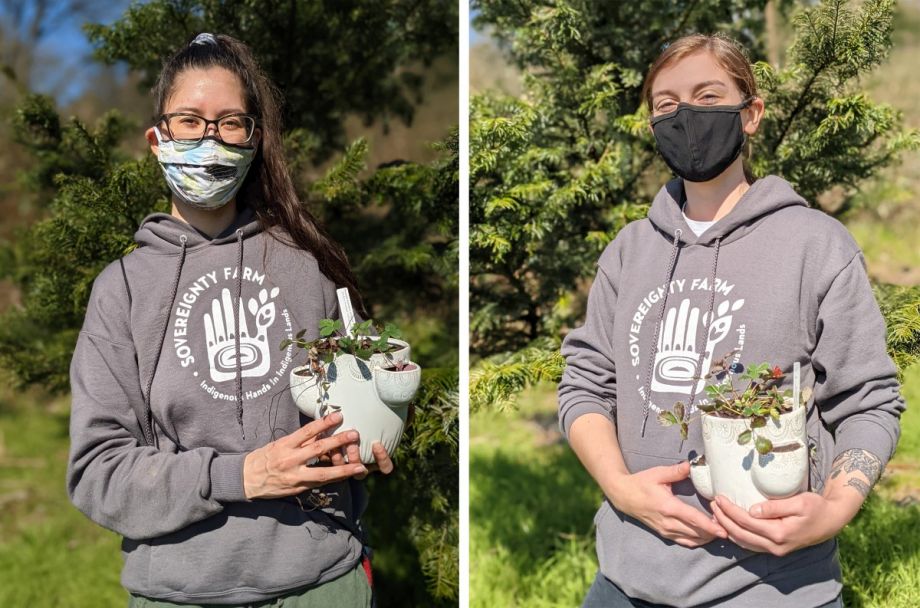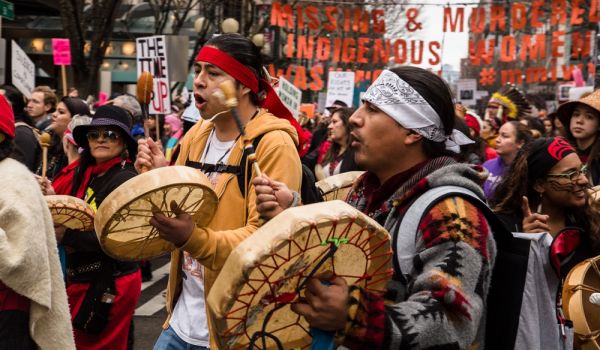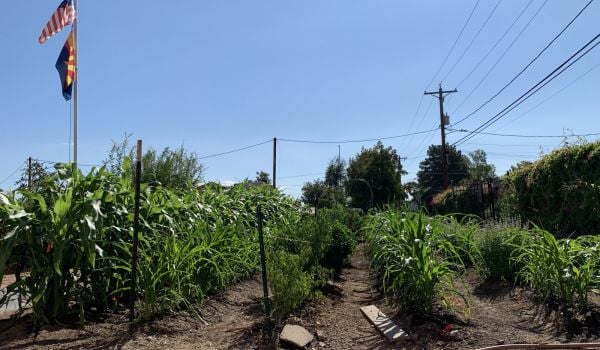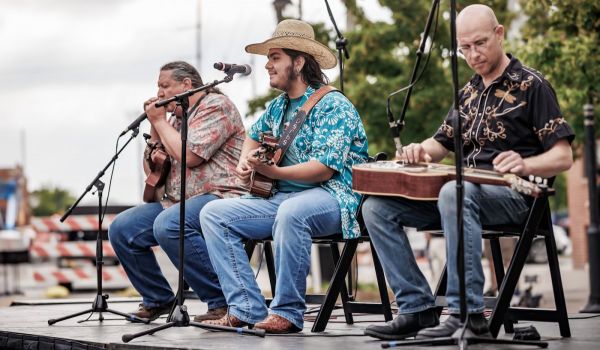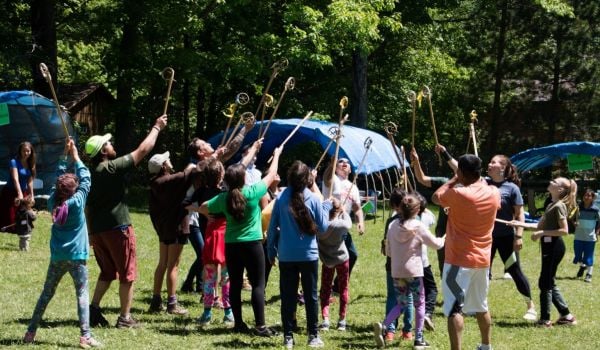This March, just south of Seattle, a nearly one-acre farm opened to grow plants and food traditional to Native Americans, with the goal of providing produce for a new cafe that will cook Native foods. It is the latest project of Chief Seattle Club, a Native-led human services agency dedicated to “physically and spiritually supporting American Indian and Alaska Native people.”
Called Sovereignty Farm, it will complement a number of Chief Seattle Club efforts. The farm already hosts the organization’s Native Works job rehabilitation program, training apprentices in both urban and Native farming skills. This fall, a cafe and community space called ?al?al will open at the base of an affordable and supportive housing project developed by Chief Seattle Club. The cafe will use food from Sovereignty Farm, with Native Works apprentices cooking Native foods for Chief Seattle Club members and the broader public.
“It feels like a really beautiful, full circle that’s happening,” says Lacey Warrior, director of Native Works.
Even though the farm fits well into Chief Seattle Club programming, it wasn’t planned — the organization received an unexpected land donation in Tukwila last year. “We thought, let’s start a farm and bring this into our vocational rehabilitation program,” says Warrior. “Let’s also approach this from an Indigeneous lens, bringing in traditional knowledge keepers.”
Chief Seattle Club hired Olivia Morgan, a member of the Choctaw Nation of Oklahoma and descendant of the Chickasaw Nation, as farm mentor, and Victoria Plumage, who is Assiniboine and Native Hawaiian, as farm coordinator. Morgan, who studies social work, supports the three paid apprentices from Native Works. Plumage, who spent years learning the region’s vegetation, leads the farming effort in collaboration with the apprentices.
The apprenticeship goes beyond farming skills — both Morgan and Plumage take a holistic view to the work. Rather than immediately ripping out all invasive plants, Plumage is following the Indigeneous philosophy of observing what’s there and discussing with the team how best to work with the land. “There’s a good amount of restoration work that needs to happen before we can really get into the farming part,” Plumage says. The team takes plant walks each week to identify and discuss what’s growing.
Morgan developed a “quality of life” survey to check-in on each apprentice’s physical, mental, spiritual and community health. “Inherently, working with the land is going to have several different effects on you,” Morgan says, “Especially for Indigenous people.”
For the whole team, reclaiming land is an important component to this work. Native people have been separated from their ancestral lands in many different ways, usually forced by the U.S. government. For Native people who live in cities, rapid urbanization and gentrification has limited the already-scarce access to land.
And for Morgan, who spent her early years feeling disconnected from her tribe’s culinary traditions, it’s deeply transformational to have access to Native foods. “I’ve learned why traditional foods are important as I’ve had more access to them,” she says, “And our traditional practices, a lot of the time, are what brings us comfort and healing.”
It will take some time before the farm can produce enough to significantly supply the cafe at ?al?al. But harvesting already started, with nettles that Chief Seattle Club has used to make teas. The initial harvests will be used for meals provided to the members of Chief Seattle Club and will source the cafe after it opens this fall. (The larger housing development that will house the cafe broke ground in early 2020 and topped off last month.)
Cafe operations will include Native Works apprenticeships — a continuation of the apprenticeship program at the farm. “We really want this cafe to be an open-facing social enterprise, so the broader Seattle community can learn about our mission and our members,” Warrior says.
“I really think this is an opportunity to rethink work, and how it’s connected to housing and our health,” Plumage says of the connection between the farm, housing development and community cafe. For Morgan, “It’s all connected — it’s really important to say that food sovereignty is part of that.”
The results will be a far cry from Morgan’s early disconnect from Native foods. “We’re going to be growing food for a cafe and saying: ‘This was grown by Indigenous people’,” she says. “There’s so many possibilities and ways we can serve our community from the farm.”

Emily Nonko is a social justice and solutions-oriented reporter based in Brooklyn, New York. She covers a range of topics for Next City, including arts and culture, housing, movement building and transit.
Follow Emily .(JavaScript must be enabled to view this email address)

